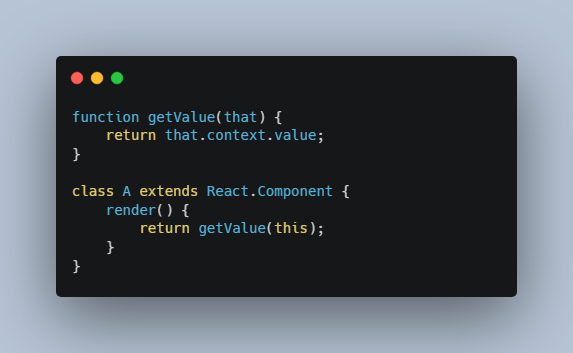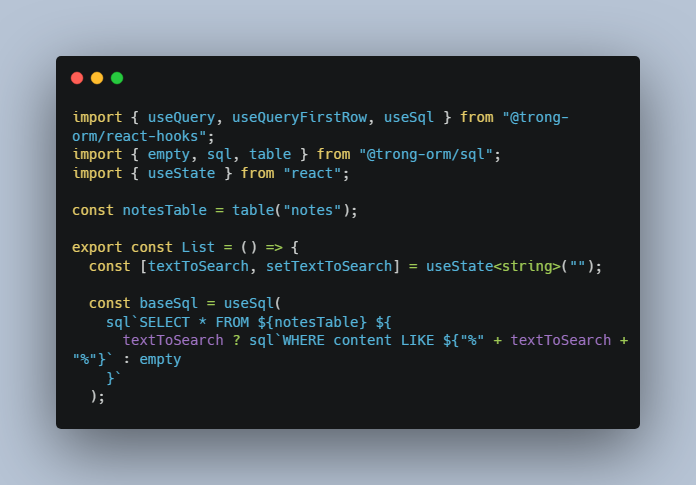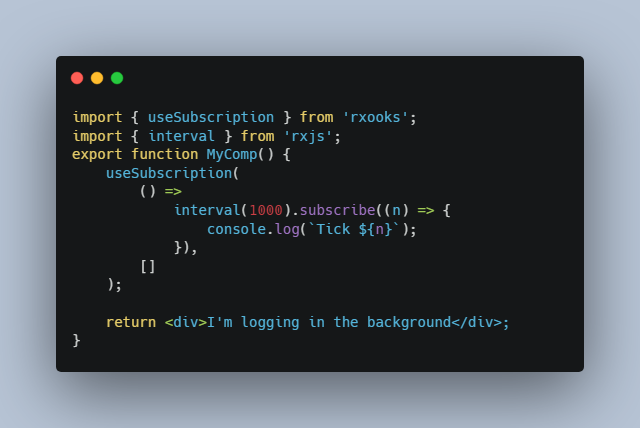types-react-codemod
Collection of transforms for jscodeshift related to @types/react.
Getting started
The codemod helps to fix potential TypeScript compile errors when upgrading to @types/react@^18.0.0.
However, we recommend to apply this codemod if you’re using @types/react@^17.0.30.
$ npx types-react-codemod preset-18 ./src
? Pick transforms to apply (Press <space> to select, <a> to toggle all, <i> to invert selection, and <enter> to proce
ed)
❯◯ context-any
◉ deprecated-react-type
◉ deprecated-sfc-element
◉ deprecated-sfc
◉ deprecated-stateless-component
◯ implicit-children
◯ useCallback-implicit-any
All done.
Results:
0 errors
20 unmodified
0 skipped
3 ok
Time elapsed: 0.229seconds
Usage
$ npx types-react-codemod --help
types-react-codemod <codemod> <paths...>
Positionals:
codemod [string] [required] [choices: "context-any", "deprecated-react-type",
"deprecated-sfc-element", "deprecated-sfc", "deprecated-stateless-component",
"implicit-children", "preset-18", "useCallback-implicit-any"]
paths [string] [required]
Options:
--version Show version number [boolean]
--help Show help [boolean]
--dry [boolean] [default: false]
--ignore-pattern [string] [default: "**/node_modules/**"]
--verbose [boolean] [default: false]
Examples:
types-react-codemod preset-18 ./ Ignores `node_modules` and `build`
--ignore-pattern folders
"**/{node_modules,build}/**"
Available transforms
Some transforms change code they shouldn’t actually change. Fixing all of these requires a lot of implementation effort. When considering false-positives vs false-negatives, I opt for false-positives. The reason being that a false-positive can be reverted easily (assuming you use have the changed code in Version Control e.g. git) while a false-negative requires manual input.
preset-18deprecated-react-typedeprecated-sfc-elementdeprecated-sfcdeprecated-stateless-componentcontext-anyimplicit-childrenuseCallback-implicit-any
preset-18
This codemod combines all codemods for React 18 types.
You can interactively pick the codemods included.
By default, we the codemods that are definitely required to upgrade to @types/react@^18.0.0 are selected.
The other codemods may or may not be required.
You should select all and audit the changed files regardless.
context-any
class Component extends React.Component<Props> {
+ context: any
render() {
return this.context.someContextProperty;
}
}
You should only apply this codemod to files where the type-checker complains about access of unknown in this.context.
We’ll check for any occurence of context (case-sensitive) in a React.Component body (or React.PureComponent).
If we find any occurence of context we’ll add context: any declaration to the class body.
false-positive on context usage
We’ll add context: any even if you write const { context } = props.
This simplifies the implementation tremendously and follows the overall rationale for false-positives: it can be reverted easily and at worst restores the behavior of React 17 typings.
false-negative when inheriting from another component
Class inheritance chains are not handled.
class A extends React.Component {}
class B extends A {
render() {
// will error since the transform does not add `context: any` to the declaration of `A` nor `B`.
// It's up to you to decide whether `A` or `B` should have this declaration
return this.context.value;
}
}
We’ll also miss usage of context if it’s accessed outside of the class body e.g.
function getValue(that) {
return that.context.value;
}
class A extends React.Component {
render() {
return getValue(this);
}
}
This doesn’t really follow the general transform rationale of “over-applying” since at worst we restore React 17 behavior.
I just think that most class components do not use this.context (or already have a type declaration) somewhere else.
All deprecated- transforms
-React.ReactType
+React.ElementType
-React.SFC
+React.FC
-React.StatelessComponent
+React.FunctionComponent
-React.SFCElement
+React.FunctionComponentElement
They simply rename identifiers with a specific name.
If you have a type with the same name from a different package, then the rename results in a false positive.
For example, ink also has a StatelessComponent but you don’t need to rename that type since it’s not deprecated.
implicit-children
-React.FunctionComponent<Props>
+React.FunctionComponent<React.PropsWithChildren<Props>>
-React.FunctionComponent
+React.FunctionComponent<React.PropsWithChildren<unknown>>
This transform will wrap the props type of React.FunctionComponent (and FC, SFC and StatelessComponent) with React.PropsWithChildrne.
Note, that the transform assumes React.PropsWithChildren is available.
We can’t add that import since React.PropsWithChildren can be available via tsconfig.json.
implicit-children false-positive pattern A
We’ll apply React.PropsWithChildren everytime.
If you have a component that doesn’t actually take children, we’ll not fix what removal of implicit children should’ve fixed.
Similarly, if your props already have children declared, PropsWithChildren will be redundant.
Redundant PropsWithChildren are only problematic stylistically.
implicit-children false-positive pattern B
MyFunctionComponent<Props> where MyFunctionComponent comes from import { FunctionComponent as MyFunctionComponent } from 'react' will be ignored.
In other words, the transform will not wrap Props in React.PropsWithChildren.
The transform would need to implement scope tracking for this pattern to get fixed.
useCallback-implicit-any
-React.useCallback((event) => {})
+React.useCallback((event: any) => {})
This transform should only be applied to files where TypeScript errors with “Parameter ‘*’ implicitly has an ‘any’ type.(7006)” in useCallback.
useCallback-implicit-any false-positive pattern A
If the callback param is inferrable by TypeScript we might apply any without need.
In the example below the type of event is inferrable and adding any essentially reduces type coverage.
This is why it’s recommended to only apply useCallback-implicit-any to files that produce “Parameter ‘*’ implicitly has an ‘any’ type.(7006)” when type-checking with @types/react@^18.0.0.
type CreateCallback = () => (event: Event) => void;
-const createCallback: CreateCallback = () => useCallback((event) => {}, [])
+const createCallback: CreateCallback = () => useCallback((event: any) => {}, [])





